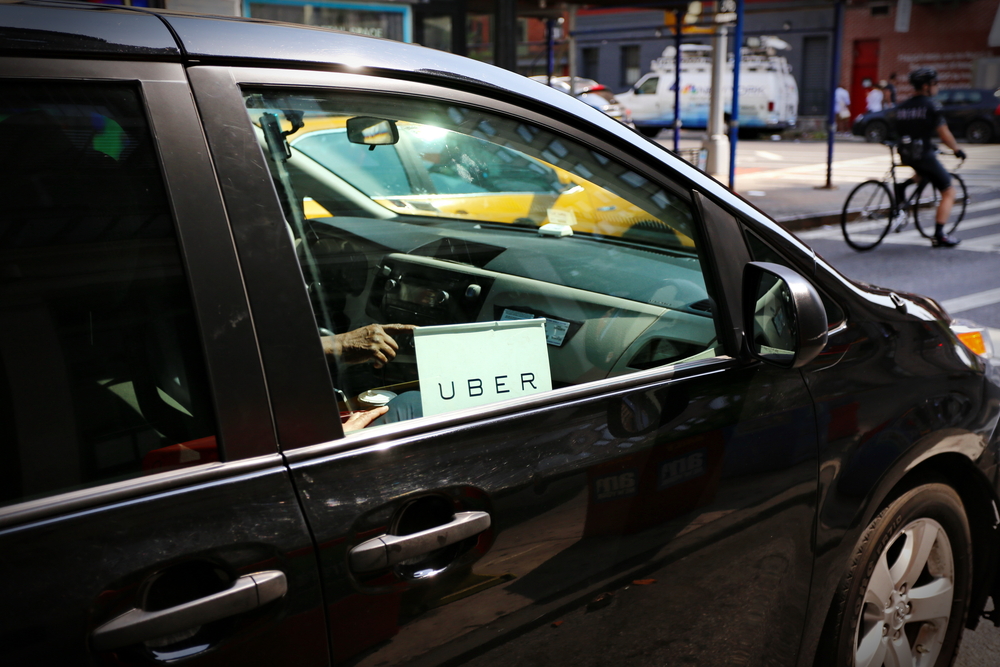

Uber has been ordered to pay $1.1 million (£795,000) to a blind San Francisco woman who was refused rides on numerous occasions.
Lisa Irving encountered issues with Uber drivers at least 14 times, with drivers unwilling to transport her guide dog.
Organisations providing public transport are legally obliged to transport guide animals under US law.
An arbitrator rejected Uber’s claim that it wasn’t liable for the infractions, as in California its drivers are classed as independent contractors and not employees.
Most of the incidents occurred when Irvng was living in San Diego. The case involved 14 of what she said were at least 60 ride rejections.
At times drivers were verbally abusive or terminated a ride early, forcing Irving to order another ride.
The company was ordered to pay Irving $324,000 in damages along with legal expenses of $805,313.
Uber said it was “proud” of the services it provided to blind people.
“Drivers using the Uber app are expected to serve riders with service animals and comply with accessibility and other laws, and we regularly provide education to drivers on that responsibility,” the company said in a statement.
Irving was obliged to agree to arbitration under Uber’s terms of service, and the outcome does not create the same legal precedent as a court decision.
But the settlement was not sealed, and as such its reasoning can be adopted by other arbitrators and courts.
“I’m sorry it came to this,” Irving told the San Francisco Chronicle. “I would have preferred that my civil rights be respected. But it sends a strong message that this is not acceptable and (entities that discriminate) will be held accountable for their actions until they change.”
Irving reported the incidents to Uber, but said doing so became more difficult when Uber removed a dedicated phone line for individuals with disabilities.
The company says it provides a special form on its website and app for reports about service animals, investigates each complaint and “takes appropriate action”.
The US’ National Federation of the Blind sued Uber in 2014 over guide-dog issues, and Uber settled the case in early 2017, agreeing to ensure its drivers were aware of their legal obligations.
Irving’s issues took place in 2016 and 2017, some after the settlement was reached.
More recently she said she has not experienced problems with the company.
Following the passage of Proposition 22 in California, ride-share companies such as Uber and Lyft are able to retain contractor status for their drivers in the state.
In the UK, meanwhile, a UK Supreme Court decision earlier this year forced Uber to give its drivers employee status.
British retailer Marks & Spencer apologises after it struggles to recover from cyberattack this week,…
Apple to pivot manufacturing of iPhones for US away from China and to India, after…
Boom time. Amid ongoing cost cutting and potential break-up threat, Alphabet profits surge as AI…
AI pioneer OpenAI is interested if Google is forced to sell of its Chrome browser…
Several units within Google notified remote workers jobs will be in jeopardy if they don't…
Leading holders of Trump meme coin receive invitation to private gala dinner with US President,…